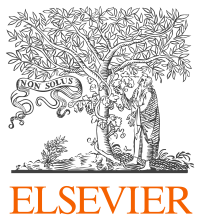Ranga Dias, the physics researcher whose work on room-temperature superconductors has been retracted after coauthors raised concerns about the data, has lost another paper for the same reason.
This retraction brings Dias’ total to five, by our count.
The University of Rochester in New York, where Dias is an assistant professor, is investigating his work, Science has reported. Washington State University, where Dias obtained his PhD, is also investigating allegations of plagiarism in his thesis.
Dias has not responded to our request for comment about his latest retraction, of a 2021 paper in Physical Review Letters titled “Synthesis of Yttrium Superhydride Superconductor with a Transition Temperature up to 262 K by Catalytic Hydrogenation at High Pressures.” The article has been cited 178 times, according to information presented on its abstract page.
In December, the journal published an expression of concern for the paper, stating it was investigating concerns “regarding the origins and integrity of the transport data” in several of the paper’s figures “with the cooperation of the authors.”
On June 13, the journal retracted the paper. The notice states:
Continue reading Superconductor researcher loses fifth paper








